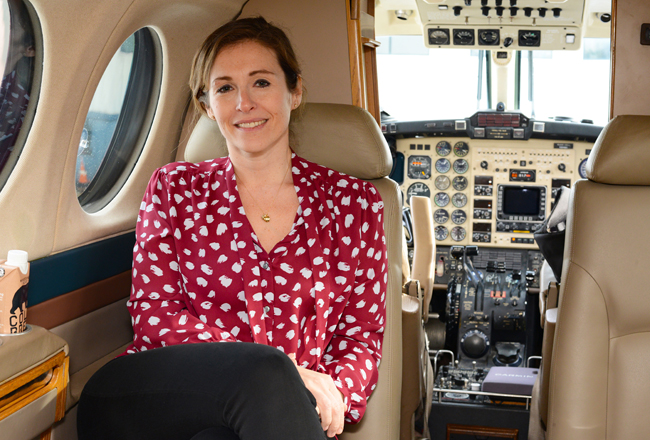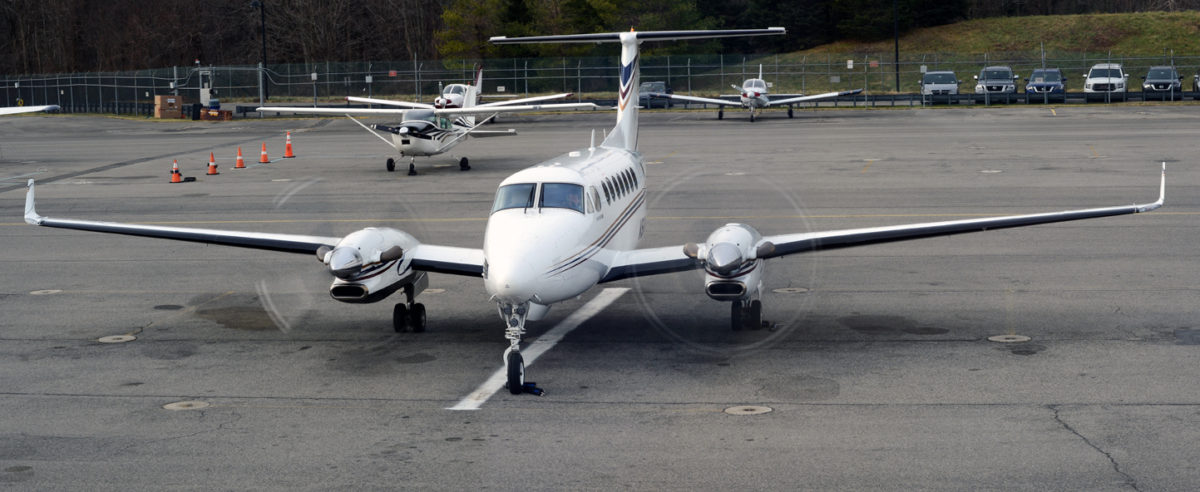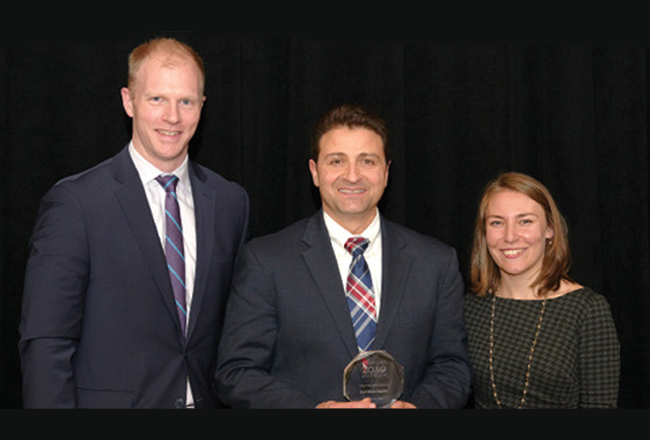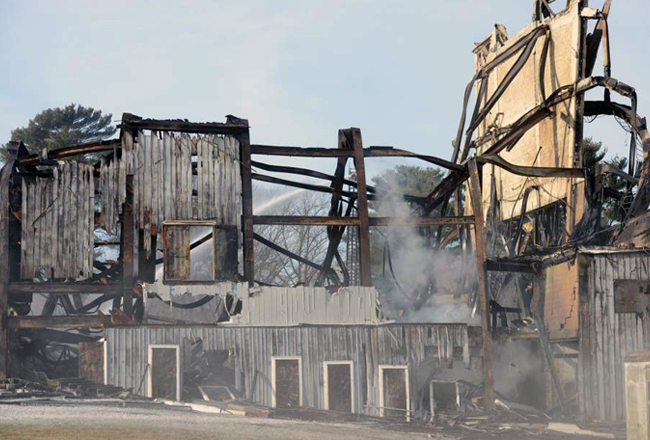
Fly Louie, an aviation startup with its first routes out of Westchester County Airport, hopes to “meld the best of commercial travel with the best of charter,” as described by founder and CEO Julia Takeda.
Takeda, a Chappaqua native, launched the company in 2017 with a focus on offering individual seats on private flights. The pitch to fliers: bypass the inconveniences of commercial planes ”” long lines, delays, rigid schedules ”” without spending thousands chartering a full private flight.
The company launched its second route Jan. 7 between Westchester and Allegheny County Airport just outside of Pittsburgh. Offering a welcome rate of $538 for the first month, Takeda hopes the route will build on the success of the company”™s first route between Westchester and Nantucket last summer.
Based in Manhattan, Fly Louie is not actually an airline. Rather it”™s a platform that charters private planes from licensed operators and then sells the seats individually. Passengers buy seats through Fly Louie”™s website to access luxury eight-seat turboprop planes at a private terminal, Ross West for Westchester. Passengers can arrive just 15 minutes before departure, park near the terminal for free and avoid lines for security, as TSA-compliant background checks are done in advance. The company says it can save passengers a couple of hours in travel time each direction.
Takeda launched the company as an MBA student in the Columbia School of Business. A graduate of Horace Greeley High School, Takeda helped grow and sell an education technology company before pursuing an MBA at Columbia.
While studying at Columbia, Takeda began to look to the aviation sector as a place where she could make a difference.
“What you see pretty quickly, and I”™m not the first to observe this, is there has been a crazy consolidation in commercial airlines,” Takeda said. “Even a decade ago, there were nine major carriers. Now there are four major carriers.”
Without competition, there are fewer direct flights going between midsize cities. What flights there are, Takeda said, are often expensive.
In the charter aviation sector, there are 2,500 operators that are, by Takeda”™s measure, mostly fragmented.
“They do a really good job of managing their planes and keeping them safe and it is this great alternative mode of transportation,” she said. “But it”™s expensive because there is this burden to rent the whole plane.”
To Takeda, there was a chance to expand access to private flights for passengers while helping operators utilize their planes more efficiently.

Columbia Business School, Takeda said, helped connect her to people with industry expertise, as well as provide needed startup funding and pitch experience through business competitions. Fly Louie won $25,000 in funding through pitch competitions and $50,000 through Columbia Business School”™s Eugene M. Lang Entrepreneurial Initiative Fund, which provides early-stage investment to student business initiatives. That money helped fund the company through its first seed funding round, which closed last fall at an undisclosed amount.
In the summer of 2018, Fly Louie came to Westchester for its inaugural route, 36 flights between Westchester and Nantucket. Interest in the route, as well as bookings, grew through the summer, confirming to Takeda the concept worked.
“What we found was a lot of word of mouth and referrals,” she said. “Folks who flew with us weren”™t switching back. We just had to get them on that first flight.”
As for why the company picked Westchester for its first two routes, Takeda said there was a hometown advantage: she knows the airport well. But it”™s also convenient to customers in New York City as well as the surrounding area. To use the airport, the company pays landing and facility fees in proportion to its flight volume.
To choose its second route, Fly Louie completed a market analysis for a group of possibilities. The company plans to specialize in routes that are under 500 miles: a maximum of an hour to 90 minutes of flight time. It”™s there, Takeda said, that Fly Louie can keep its costs to within a couple hundred-dollar premium compared with commercial flights. The 500-mile radius represents just under one-third of all travel in the U.S., according to Takeda.
The study pointed Takeda and COO Eytan Kurshan, a former JetBlue Airways route network manager, to Pittsburgh. About 1,200 people fly each day between New York and the City of Bridges, according to Takeda”™s research. She has made several trips to Pittsburgh since the start of route planning, meeting with municipal and business officials. She described the city as a hub for technology and innovation, led by Carnegie Mellon University. She also cited a thriving arts scene and pro sports teams in baseball”™s Pirates, hockey”™s Penguins and football”™s Steelers. Companies such as Dick”™s Sporting Goods and Alcoa are headquartered within or near the city.
“There are a ton of opportunities for us to connect with folks who would want this,” Takeda said.
The company”™s preferred aircraft include the King Air 350, a twin-engine turboprop, and the Pilatus PC-12. Operators Altius Aviation and Reliant Air Charter will handle the majority of the flights.
The flights start with the one-month introductory flat rate of $538, including tax, one-way for a flight. After that, prices rise to $795 each way. Flights run with two pilots. On-board amenities include large leather seats, small bottles of prosecco, craft beer from Pittsburgh purveyors (though Takeda said Westchester brews may be boarding soon) and iced coffee from Wandering Bear Coffee, a fellow Columbia startup.
“We try to find things that are unique to the route,” Takeda said. For the Nantucket flights, that meant Cape Cod potato chips and Whales Tale Pale Ale from a Nantucket brewery.
Even with the introductory rate, Takeda admits that Fly Louie won”™t come in cheaper than commercial options. But Takeda believes the company can save customers enough time to make the premium price worthwhile.
“We can make it a three-hour trip door to door,” Takeda said. “We think that is compelling to enough people.”
The company hopes to not only convert commercial travelers, but also prove a more efficient form of travel for those who already typically fly private, including corporate clients.
There is some competition in the field. Companies such as Blade and Tradewind Aviation have offered by-the-seat private routes from Westchester to Martha”™s Vineyard and Nantucket seasonally. In a report on the increasing accessibility of private travel last year, The New York Times cited data from the research company Euromonitor, which found the number of passengers in the U.S. who chartered planes increased from 4.88 million in 2013 to 5.32 million in 2016.
“Competition ”¦ indicates your idea isn”™t such a crazy one,” Takeda said. “But there”™s not so much competition [that] it”™s troubling.”
Fly Louie is advertising its Pittsburgh route through digital marketing as well as radio and print ads, Takeda said.
Fly Louie is focused on the Pittsburgh route and the return of the seasonal Nantucket route before launching any new ones. “Once we”™ve gotten that right, there”™s a ton of opportunity and a lot that is transferable from our learning and experience here,” Takeda said.
The name Fly Louie is in honor of Takeda”™s great-uncle Lou, who immigrated from Russia in 1919 and launched a business in South Dakota that helped bring the rest of his family, including Takeda”™s grandfather, to the U.S.
Takeda says the Fly Louie name “makes the business a little more accessible and makes the idea of private aviation more accessible. But it is also because of Lou. He”™s a special person in our family.”
Last year, Takeda also named her son Louie, in her great-uncle”™s honor.






















